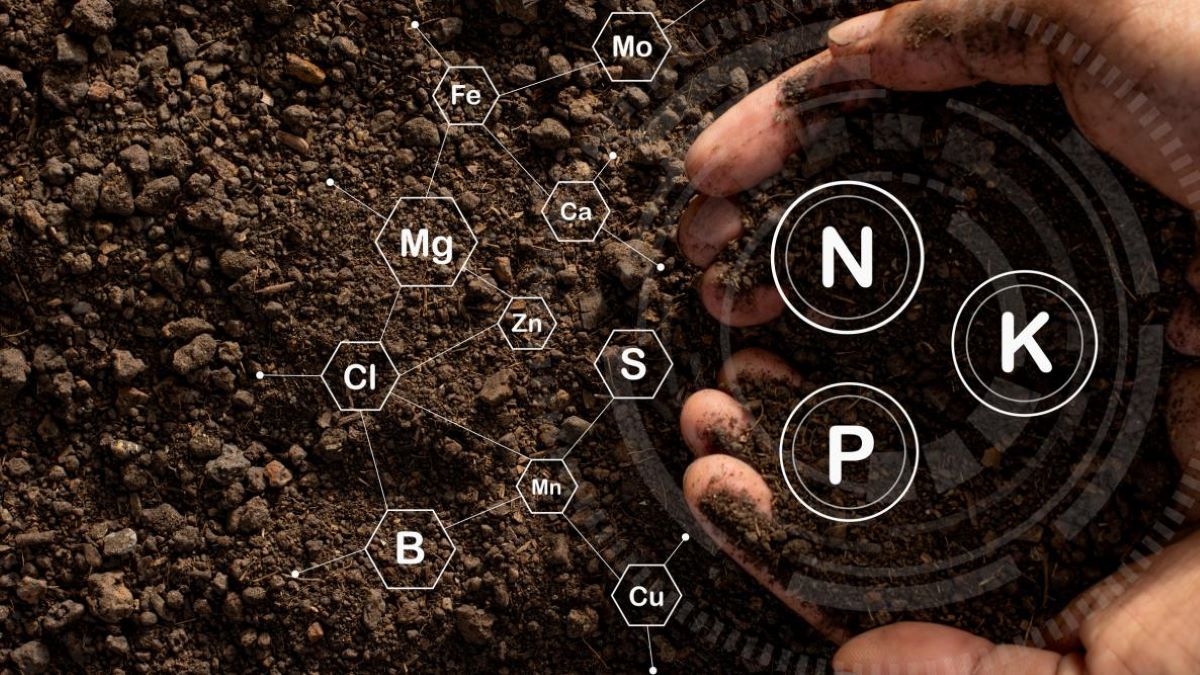

Articles
What Is Npk Fertilizer
Modified: January 19, 2024
Discover the benefits and uses of NPK fertilizer in this informative article. Learn how NPK fertilizer can enhance plant growth and maximize yields.
(Many of the links in this article redirect to a specific reviewed product. Your purchase of these products through affiliate links helps to generate commission for Storables.com, at no extra cost. Learn more)
Introduction
Welcome to the world of gardening and agriculture! If you’ve ever dabbled in growing your own plants or vegetables, you’ve probably come across the term “NPK fertilizer.” But what exactly is NPK fertilizer, and why is it so important for plant growth?
NPK fertilizer is a type of fertilizer that contains three essential nutrients: nitrogen (N), phosphorus (P), and potassium (K). These three nutrients are crucial for promoting healthy plant growth, as they play different roles in the development of plants.
In this article, we will explore the concept of NPK fertilizer in depth and understand how it contributes to the growth and well-being of plants. We will also discuss the different types of NPK fertilizers available and how to effectively apply them to maximize their benefits.
So, whether you’re an experienced gardener looking to expand your knowledge or a novice who wants to learn more about fertilizers, let’s dive into the world of NPK fertilizers and uncover its secrets to plant success!
Key Takeaways:
- NPK fertilizer, containing nitrogen, phosphorus, and potassium, is essential for promoting healthy plant growth. Understanding its functions, benefits, and effective application can maximize its potential in gardening and agriculture.
- While NPK fertilizer offers numerous benefits, it’s crucial to consider potential drawbacks and environmental implications. Responsible fertilization practices and sustainable alternatives can help mitigate these issues, promoting a balance between plant nutrition and environmental impact.
Read also: 13 Best Npk Fertilizer for 2024
Definition of NPK Fertilizer
NPK fertilizer is a type of fertilizer that contains three primary nutrients essential for plant growth: nitrogen (N), phosphorus (P), and potassium (K). These nutrients are represented by numbers on the packaging of NPK fertilizer, such as 10-10-10 or 20-10-5, which indicate the percentage of each nutrient present in the fertilizer.
Nitrogen (N) is responsible for promoting leaf and stem growth. It plays a crucial role in the formation of chlorophyll, which is essential for photosynthesis. Nitrogen also aids in the production of proteins, enzymes, and other vital components necessary for plant development.
Phosphorus (P) is vital for root development, flowering, and fruiting. It helps in the transfer of energy within the plant and promotes the development of strong, healthy roots. Phosphorus also contributes to the efficient uptake and utilization of other nutrients by plants.
Potassium (K) enhances overall plant vigor and strengthens its resistance to diseases and pests. It is involved in photosynthesis, the production of carbohydrates, and the regulation of water movement within the plant. Potassium also plays a vital role in improving the quality and flavor of fruits and vegetables.
By providing these essential nutrients, NPK fertilizer serves as a concentrated source of plant nourishment. It ensures that plants receive a balanced diet of nutrients required for optimal growth and development.
NPK fertilizers are available in various forms, including granules, powders, and liquids. Granular forms are commonly used for application in gardens and agricultural fields, while liquid forms can be easily applied through foliar spraying or irrigation systems.
It is important to note that different plants have varying nutritional requirements, and the choice of NPK fertilizer should be based on the specific needs of the plants. Conducting a soil test and understanding the nutritional deficiencies of the soil can help determine the appropriate NPK fertilizer formulation for optimal results.
Now that we have a clear understanding of what NPK fertilizer is and the role it plays in plant growth, let’s delve deeper into the specific functions of each nutrient and their importance for plant development.
The Functions of NPK Fertilizer
NPK fertilizer contains three essential nutrients – nitrogen (N), phosphorus (P), and potassium (K) – which play different functions in plant growth and development. Let’s take a closer look at the specific functions of each nutrient:
Nitrogen (N)
Nitrogen is a vital nutrient that plants use for various functions. One of its primary roles is in the production of chlorophyll, the pigment responsible for the green color of leaves. Chlorophyll is essential for photosynthesis, the process by which plants convert light energy into chemical energy to fuel growth. Adequate nitrogen supply promotes healthy leaf and stem growth, making plants appear lush and vibrant.
In addition to promoting leaf development, nitrogen is also necessary for the production of proteins, enzymes, and genetic material in plants. It plays a crucial role in cell division and DNA synthesis, essential processes for overall plant growth and development.
Phosphorus (P)
Phosphorus is involved in several vital functions within plants. One of its primary roles is in promoting root development. Adequate phosphorus levels stimulate root growth, enabling plants to access water and nutrients from the soil more efficiently. Strong, healthy roots are crucial for nutrient uptake and overall plant stability.
Phosphorus is also essential for flower and fruit production. It aids in the transfer and storage of energy within the plant, contributing to the formation of high-quality blooms and abundant fruit. Adequate phosphorus levels promote flower bud formation and enhance the ability of plants to set fruits, resulting in improved yield and quality.
Read more: What Is Dap Fertilizer
Potassium (K)
Potassium is a vital nutrient that plays a multifunctional role in plant physiology. It regulates the movement of water and nutrients within the plant, maintaining proper cell turgor and preventing wilting. Potassium also enhances the plant’s resistance to diseases and pests, promoting overall plant vigor and health.
In addition to its role in water and nutrient management, potassium is involved in photosynthesis, the process by which plants convert light energy into chemical energy. Adequate potassium levels ensure efficient photosynthesis, leading to the production of carbohydrates and the synthesis of essential plant compounds.
Potassium also has a positive impact on the quality of harvested crops. It improves the flavor, color, and texture of fruits and vegetables, making them more appealing to consumers and contributing to overall market value.
By providing these essential nutrients, NPK fertilizer ensures that plants have access to the right balance of nitrogen, phosphorus, and potassium required for their growth and development. Understanding the specific functions of each nutrient helps gardeners and farmers make informed decisions about fertilization practices to achieve optimal results.
Now that we’ve explored the functions of NPK fertilizer, let’s discuss the importance of using NPK fertilizer in plant growth.
The Importance of NPK Fertilizer in Plant Growth
NPK fertilizer plays a critical role in supporting healthy and vigorous plant growth. Here are some key reasons why NPK fertilizer is important in plant development:
Nitrogen, phosphorus, and potassium are essential nutrients that plants require for their growth and development. Each nutrient serves a specific function and is responsible for different aspects of plant physiology. Nitrogen promotes leaf and stem growth, phosphorus supports root development and flower and fruit production, while potassium enhances overall plant vigor and disease resistance. By supplying these essential nutrients in the right proportions, NPK fertilizer provides plants with the necessary building blocks for optimal growth.
Plants require a balanced supply of nutrients to thrive. Each nutrient has a specific role to play, and an imbalance in their availability can lead to nutrient deficiencies or toxicity, negatively impacting plant growth. NPK fertilizer is formulated to provide a balanced ratio of nitrogen, phosphorus, and potassium, ensuring that plants receive the appropriate levels of each nutrient. This balanced nutrition promotes healthy plant growth, strengthens their defense mechanisms, and improves their overall productivity.
NPK fertilizer contributes to increased plant productivity by promoting growth and development. Adequate nitrogen levels stimulate the production of lush, green foliage, enabling plants to maximize photosynthesis and produce more energy for future growth. Phosphorus supports the development of strong root systems, leading to better nutrient uptake and improved water absorption. Meanwhile, potassium provides plants with the necessary energy and resources to withstand environmental stresses and produce higher-quality fruits and vegetables. By addressing nutrient deficiencies and supporting optimal plant health, NPK fertilizer helps increase yield, enhance crop quality, and improve overall productivity.
Continuous cultivation and harvest can deplete the soil of essential nutrients, making it less fertile over time. NPK fertilizer replenishes the nutrient levels in the soil, ensuring that plants have access to the necessary elements for growth. By maintaining soil fertility, NPK fertilizer helps sustain long-term agricultural productivity and prevents nutrient imbalances that could hinder plant growth.
Read more: What Is Urea Fertilizer
NPK fertilizers come in different formulations, designed to meet the specific needs of different plants or crops. Whether you’re growing flowering plants, leafy greens, or fruit-bearing trees, you can choose an NPK fertilizer with the right nutrient ratio to suit your plants’ requirements. This tailored approach allows you to customize your fertilization strategy and optimize the growth and performance of your plants.
Overall, NPK fertilizer is instrumental in supporting plant growth, providing essential nutrients, balancing nutrition, enhancing productivity, maintaining soil fertility, and offering tailored solutions for different plant needs. By incorporating NPK fertilizer into your gardening or farming practices, you can facilitate healthy plant growth, maximize yield, and cultivate thriving gardens or bountiful harvests.
Now that we understand the importance of NPK fertilizer in plant growth, let’s explore the different types of NPK fertilizers available in the market.
Different Types of NPK Fertilizer
NPK fertilizers come in various formulations, each designed to cater to the specific nutritional requirements of different plants. Here are some common types of NPK fertilizers:
Read more: What Is Urea Fertilizer
Complete NPK Fertilizers:
These fertilizers contain a balanced combination of nitrogen, phosphorus, and potassium, often in equal or nearly equal proportions. Common examples include 10-10-10, 20-20-20, or 14-14-14. Complete NPK fertilizers provide a well-rounded nutrient supply, suitable for a wide range of plants. They are often used as a general-purpose fertilizer for garden beds, lawns, and landscaping projects.
Specialty NPK fertilizers are formulated to meet the specific needs of certain plant types or growth stages. Examples include fertilizers with higher nitrogen content for promoting lush foliage growth, such as 30-10-10 or 20-5-10. For flowering plants or crops, fertilizers with a higher phosphorus content, such as 10-20-10 or 5-30-10, may be used to enhance flower and fruit production. These specialty formulations allow gardeners and farmers to target specific aspects of plant growth and tailor their fertilization approach accordingly.
Slow-release NPK fertilizers are designed to provide a gradual and continuous release of nutrients over an extended period. These fertilizers are often granular in form and contain coated or encapsulated nutrient particles. They are beneficial for long-term nutrient supply, reducing the frequency of fertilizer application and minimizing the risk of nutrient leaching. Slow-release NPK fertilizers are especially useful for perennial plants, trees, and shrubs.
Liquid NPK fertilizers are solutions of water-soluble nutrients that can be easily applied through foliar spraying or irrigation systems. These fertilizers offer quick absorption and are ideal for providing a rapid nutrient boost to plants. Liquid NPK fertilizers can be effective in correcting nutrient deficiencies or providing an immediate nutrient supply during critical growth stages.
For those practicing organic gardening or farming, natural or organic NPK fertilizers provide an alternative to synthetic fertilizers. These fertilizers are derived from natural sources, such as compost, manure, bone meal, or fish emulsion. They release nutrients slowly as they break down and improve the soil’s organic matter content. Natural or organic NPK fertilizers are suitable for those seeking sustainable and environmentally friendly fertilization practices.
It’s important to note that the selection of NPK fertilizer should be based on the specific nutritional needs of your plants and the requirements of your gardening or farming practices. Conducting a soil test or consulting with a local agricultural expert can help determine the right NPK fertilizer formulation for optimal results.
Now that we’ve discussed the different types of NPK fertilizers available, it’s time to explore how to apply NPK fertilizer effectively to ensure maximum benefits for your plants.
How to Apply NPK Fertilizer Effectively
Applying NPK fertilizer properly is crucial to ensure that plants receive the necessary nutrients for optimal growth. Here are some essential tips to help you apply NPK fertilizer effectively:
Read more: What Is Potash Fertilizer
1. Determine the Nutrient Needs:
Before applying NPK fertilizer, it’s important to understand the specific nutrient requirements of your plants. Conduct a soil test to identify any nutrient deficiencies or imbalances. This will help you determine the correct NPK fertilizer formulation and dosage needed to meet your plants’ nutritional needs.
2. Follow Recommended Dosage:
Read the instructions on the fertilizer packaging and follow the recommended dosage guidelines. Applying excessive amounts of NPK fertilizer can lead to nutrient imbalances, toxicity, or environmental pollution. Remember that “more is not always better” when it comes to fertilizers.
3. Timing is Key:
Timing plays a crucial role in the effectiveness of NPK fertilizer application. Apply fertilizers at the right time based on your plants’ growth stage and the specific recommendations for the type of plants you are cultivating. Different plants have varying nutrient demands throughout their life cycle, so make sure to align your fertilization schedule accordingly.
4. Consider the Application Method:
NPK fertilizers can be applied in different ways, such as broadcast spreading, banding, or foliar spraying. The application method depends on the type of fertilizer, the size of the area being fertilized, and the specific plant’s needs. Ensure that the fertilizer is evenly distributed, avoiding concentrated application that may cause burning or uneven nutrient distribution.
Read more: What Is A Starter Fertilizer
5. Incorporate into the Soil:
For granular NPK fertilizers, it is beneficial to incorporate them into the soil surface. This helps facilitate nutrient absorption by the plant roots and prevents the fertilizer from being washed away by rain or irrigation. Use a rake or a garden cultivator to mix the fertilizer into the top few inches of soil.
6. Watering after Application:
After applying NPK fertilizer, make sure to water the area thoroughly. This helps to dissolve and distribute the nutrients into the soil, making them more accessible to the plant roots. Proper watering also helps prevent nutrient loss through leaching.
7. Regular Application Schedule:
To maintain consistent nutrient supply, it’s essential to establish a regular fertilization schedule. This ensures that plants receive a continuous and balanced nutrient intake throughout their growing season. Monitor your plants regularly and adjust the fertilization schedule as needed based on their health, growth, and specific requirements.
8. Follow Safety Precautions:
When handling and applying NPK fertilizer, it’s important to follow safety precautions. Wear gloves and protective clothing, as some fertilizers may cause skin irritation. Keep fertilizers out of reach of children and pets. Ensure proper storage to prevent moisture absorption or nutrient degradation.
By applying NPK fertilizer effectively, you can maximize the benefits for your plants and support their healthy growth. Remember to consider the nutrient needs, follow recommended dosages, time your applications, choose the appropriate method, incorporate the fertilizer into the soil, water adequately after application, establish a regular schedule, and prioritize safety precautions.
Now that we’ve covered effective application methods for NPK fertilizer, let’s take a closer look at the potential benefits and drawbacks associated with its use.
Read more: What Is Synthetic Fertilizer
Potential Benefits and Drawbacks of NPK Fertilizer
NPK fertilizer offers several benefits in promoting plant growth and increasing crop productivity. However, it is important to also consider the potential drawbacks associated with its use. Let’s explore both the benefits and drawbacks:
Potential Benefits of NPK Fertilizer:
1. Optimal Nutrient Supply:
NPK fertilizer provides a balanced supply of essential nutrients that plants require for growth. It ensures that plants receive the appropriate levels of nitrogen, phosphorus, and potassium, promoting healthy development, higher yields, and improved crop quality.
2. Enhanced Plant Growth:
By providing essential nutrients, NPK fertilizer can stimulate plant growth and development. Nitrogen promotes lush green foliage, phosphorus supports root development and flower production, while potassium enhances overall plant vigor. The balanced nutrient supply from NPK fertilizer optimizes plant growth potential.
3. Increased Crop Productivity:
NPK fertilizer helps maximize crop yields by addressing nutrient deficiencies in the soil. By ensuring plants have access to the necessary nutrients, NPK fertilizer improves nutrient uptake, photosynthesis, and overall plant health, resulting in increased crop productivity.
4. Soil Fertility Management:
NPK fertilizer replenishes nutrient levels in the soil, maintaining its fertility and preventing nutrient depletion. Regular application of NPK fertilizer helps sustain agricultural productivity by providing the necessary nutrients for ongoing plant growth.
5. Targeted Nutrient Delivery:
NPK fertilizers come in different formulations, allowing gardeners and farmers to target specific nutrient requirements. This targeted approach enables customized fertilization strategies based on the specific needs of different plant types or growth stages.
Potential Drawbacks of NPK Fertilizer:
1. Nutrient Imbalances:
If not applied correctly or in excessive amounts, NPK fertilizer can cause nutrient imbalances. Over-application of certain nutrients, particularly nitrogen, can lead to environmental pollution, nutrient leaching, and imbalanced plant growth. It is essential to follow recommended dosage guidelines and conduct soil tests to avoid nutrient imbalances.
2. Environmental Impact:
Inadequate management of NPK fertilizer can have negative environmental consequences. Excessive fertilizer runoff can contribute to water pollution, leading to algal blooms and ecological imbalances in nearby water bodies. It is important to apply NPK fertilizer judiciously and consider environmental factors.
3. Dependency on Fertilizers:
Overreliance on NPK fertilizers may lead to dependency, where plants become reliant on external nutrient sources. This can inhibit their ability to uptake natural nutrients present in the soil, potentially reducing their resilience and nutrient utilization capacity.
4. Loss of Soil Microbial Activity:
Continuous use of NPK fertilizer without organic matter additions can impact soil fertility. It can reduce the activity and diversity of beneficial soil microorganisms, affecting soil structure, nutrient cycling, and overall soil health. Incorporating organic matter can help mitigate this drawback.
5. Cost and Accessibility:
NPK fertilizers, especially high-quality varieties, can be costly. The cost of regular fertilization can add up, particularly for large-scale agricultural operations. Accessibility to fertilizers in remote or underprivileged areas can also be a challenge, limiting their use and benefits in certain regions.
By considering both the potential benefits and drawbacks of NPK fertilizer, gardeners and farmers can make informed decisions about its use. It is important to strike a balance between providing adequate nutrients for plant growth and minimizing potential negative impacts on the environment and soil health.
Now that we understand the potential benefits and drawbacks of NPK fertilizer, let’s turn our focus to the environmental implications of NPK fertilizer use.
Environmental Implications of NPK Fertilizer Use
While NPK fertilizer provides numerous benefits for plant growth, its use can have environmental implications. It is important to be aware of these potential impacts and take measures to minimize them. Let’s explore the environmental implications of NPK fertilizer use:
Read more: What Fertilizer To Use For Grass
1. Water Pollution:
Excessive use or improper application of NPK fertilizer can contribute to water pollution. When fertilizers run off into nearby water bodies, they can cause eutrophication, a process where excessive nutrients lead to the overgrowth of algae. This can harm aquatic ecosystems by reducing oxygen levels and disrupting the natural balance of aquatic organisms.
2. Soil Degradation:
Over-reliance on NPK fertilizer without organic matter additions can lead to soil degradation. Continuous use of synthetic fertilizers can result in nutrient imbalances, reduced soil fertility, and loss of soil structure and microbial activity. Organic matter additions, such as compost or cover cropping, help mitigate these effects and promote long-term soil health.
3. Air Pollution:
The production and application of NPK fertilizers can contribute to air pollution. Manufacturing processes release greenhouse gas emissions, such as carbon dioxide and nitrous oxide, which contribute to climate change. Additionally, volatilization of certain nitrogen-based compounds during fertilizer application can contribute to air pollution and the formation of smog.
4. Habitat Destruction:
Uncontrolled use of NPK fertilizer can lead to the destruction of natural habitats. Runoff from agricultural fields or gardens can carry excess nutrients into nearby ecosystems, affecting the balance of native vegetation and wildlife. This can have long-term implications for biodiversity and disrupt the natural functioning of ecosystems.
Read more: What The Best Fertilizer For Grass
5. Nitrogen Leaching:
Improper use of nitrogen-based NPK fertilizers can result in nitrogen leaching. When excess nitrogen is not taken up by plants, it can leach through the soil and contaminate groundwater, causing water quality issues. Nitrate contamination in drinking water sources poses risks to human health, particularly for infants and pregnant women.
To mitigate the environmental implications of NPK fertilizer use, several strategies can be implemented:
1. Proper Nutrient Management:
Applying NPK fertilizers judiciously, based on soil tests and crop requirements, helps minimize nutrient runoff and the risk of pollution. Following recommended dosages and timing of application can ensure that plants effectively and efficiently utilize the nutrients in the fertilizer.
2. Precision Agriculture Techniques:
Implementing precision agriculture techniques, such as using variable rate application, can help reduce fertilizer usage and improve nutrient distribution. By targeting specific areas of need and avoiding over-application, precision agriculture minimizes the environmental impact of NPK fertilizer use.
3. Conservation Practices:
Implementing conservation practices, such as planting cover crops, utilizing erosion control measures, and implementing buffer zones, can help reduce nutrient runoff and soil erosion. These practices help retain nutrients in the soil, protect water quality, and promote overall ecosystem health.
4. Sustainable Fertilizer Alternatives:
Exploring and adopting sustainable fertilizer alternatives, including organic fertilizers, compost, and natural soil amendments, can reduce reliance on synthetic NPK fertilizers. These alternatives provide nutrients in a more environmentally friendly and ecologically sustainable manner.
5. Education and Awareness:
Educating farmers, gardeners, and the general public about the proper use and potential environmental impacts of NPK fertilizer is crucial. Increasing awareness and promoting responsible fertilization practices can empower individuals to make informed decisions and take steps to mitigate environmental implications.
By implementing these measures, it is possible to minimize the environmental implications of NPK fertilizer use and promote sustainable and responsible farming and gardening practices.
Now that we have explored the environmental implications, let’s summarize the key points discussed in this article.
Conclusion
NPK fertilizer, consisting of nitrogen (N), phosphorus (P), and potassium (K), is a vital tool in the world of gardening and agriculture. It provides essential nutrients that support healthy plant growth and increased crop productivity. Understanding the functions and benefits of NPK fertilizer allows gardeners and farmers to make informed decisions about its use in their cultivation practices.
Nitrogen stimulates leaf and stem growth, phosphorus promotes root development and flower/fruit production, and potassium enhances plant vigor and disease resistance. By providing a balanced supply of these nutrients, NPK fertilizer ensures optimal plant nutrition and efficient use of resources.
There are different types of NPK fertilizers available, including complete NPK fertilizers, specialty formulations, slow-release granular options, liquid fertilizers, and natural/organic alternatives. Selecting the right type of fertilizer depends on the specific nutritional needs of the plants and the desired outcomes.
Effective application of NPK fertilizer involves determining nutrient requirements, adhering to recommended dosages, timing applications correctly, incorporating into the soil, consistent watering, and following safety precautions. By employing these practices, gardeners and farmers can maximize the benefits of NPK fertilizer and promote healthy plant growth.
While NPK fertilizer offers numerous benefits for plant growth, it is essential to consider potential drawbacks and environmental implications. Nutrient imbalances, water and air pollution, soil degradation, habitat destruction, and nitrogen leaching are among the challenges associated with NPK fertilizer use. However, taking steps such as proper nutrient management, precision agriculture techniques, conservation practices, exploring sustainable alternatives, and promoting education and awareness can help mitigate these issues.
Ultimately, striking a balance between providing optimal plant nutrition and minimizing environmental impact is key. By employing responsible fertilization practices and sustainable farming/gardening approaches, it is possible to harness the benefits of NPK fertilizer while minimizing its potential drawbacks.
So, whether you are a passionate gardener aiming for a vibrant backyard or a farmer looking to increase crop yields, understanding and effectively utilizing NPK fertilizer can unlock the full potential of your plants and lead to thriving gardens or bountiful harvests.
Frequently Asked Questions about What Is Npk Fertilizer
Was this page helpful?
At Storables.com, we guarantee accurate and reliable information. Our content, validated by Expert Board Contributors, is crafted following stringent Editorial Policies. We're committed to providing you with well-researched, expert-backed insights for all your informational needs.
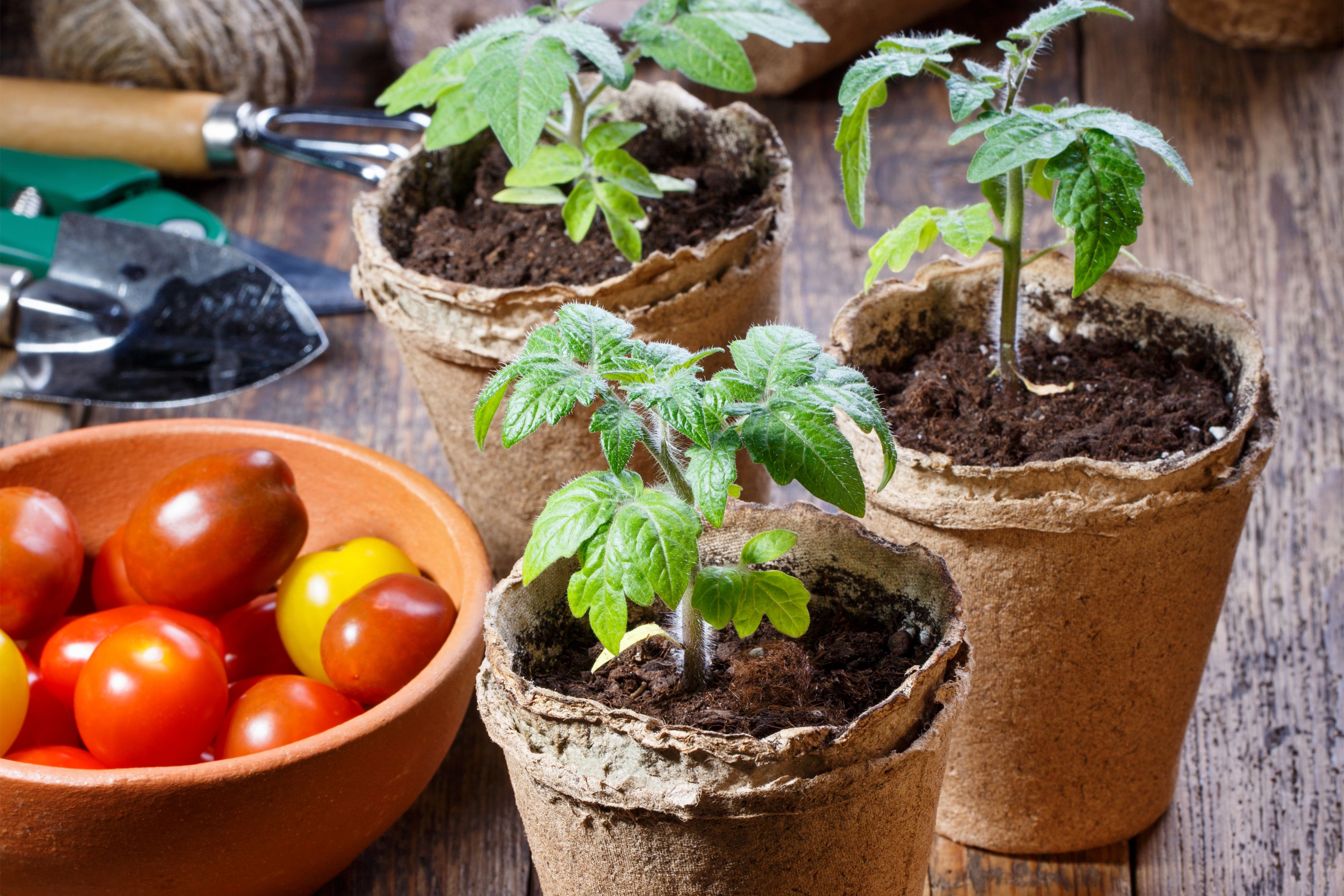

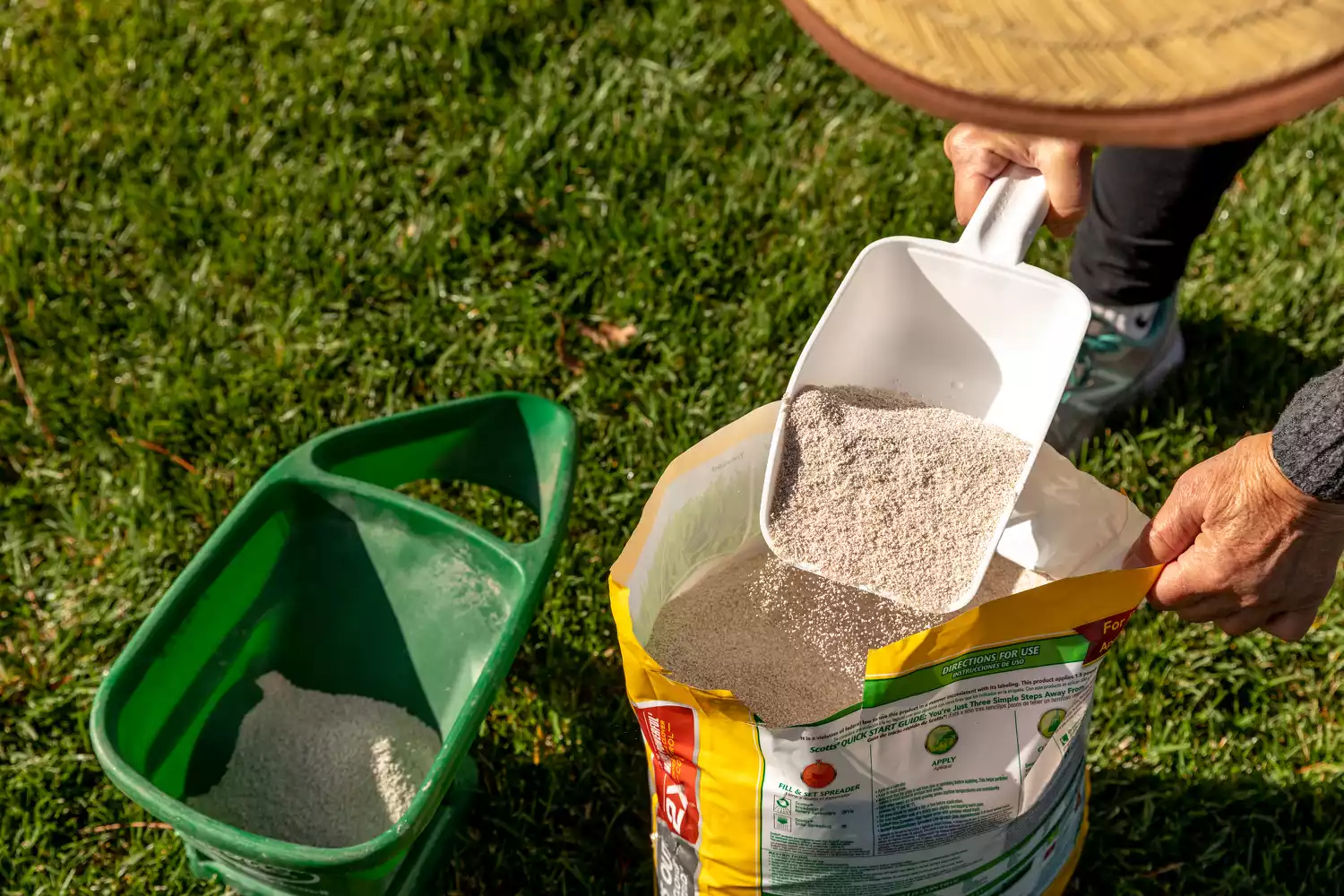
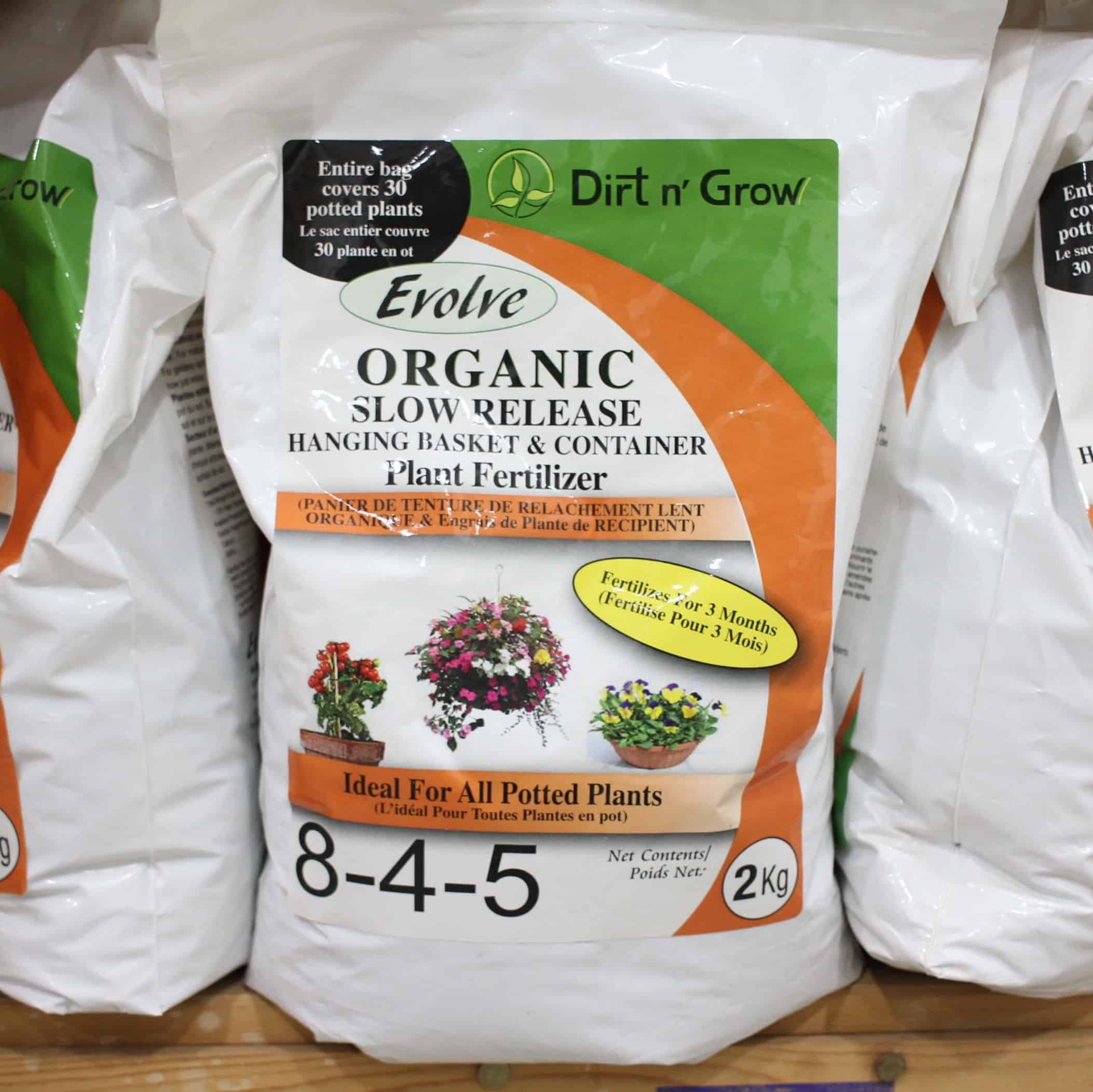

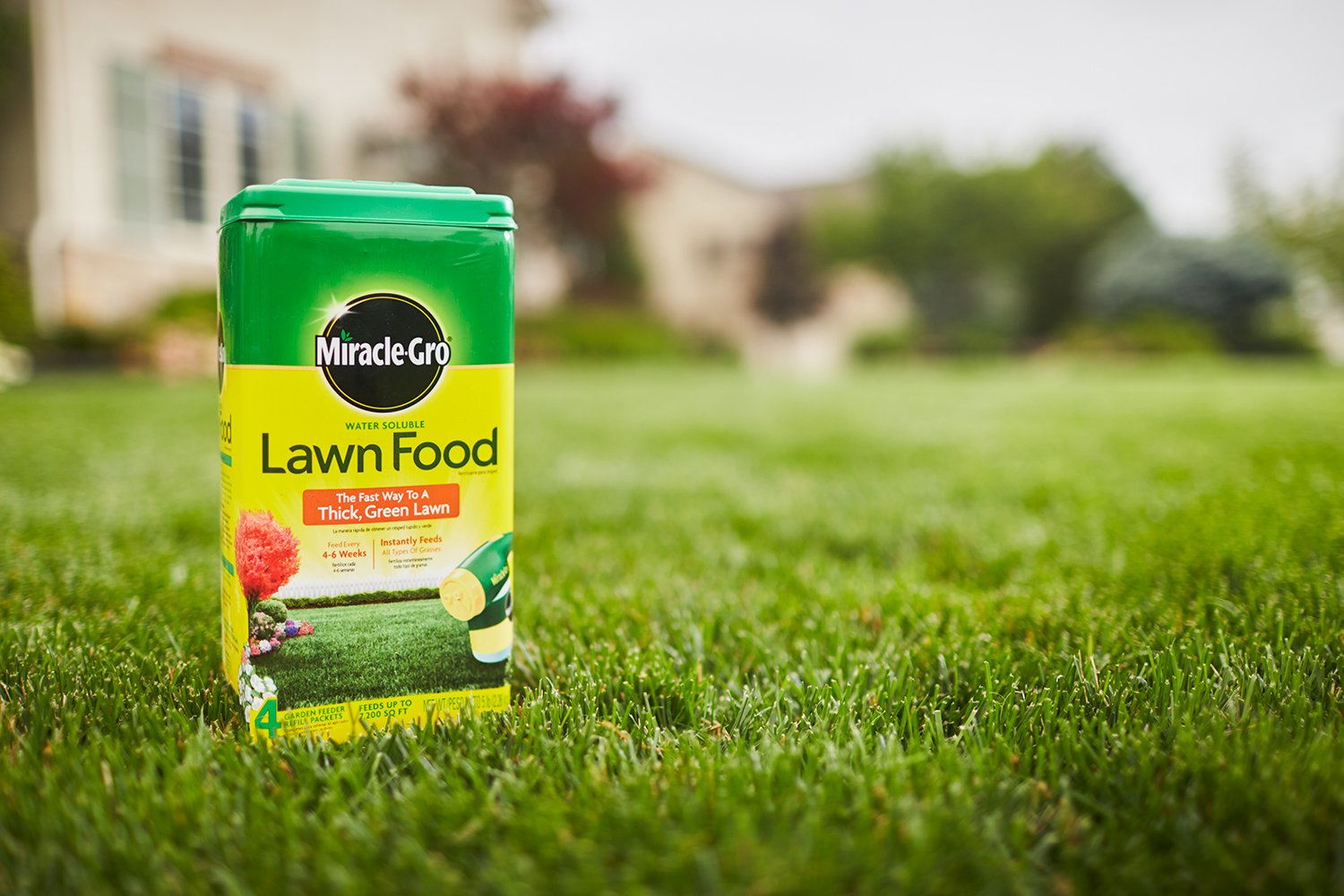

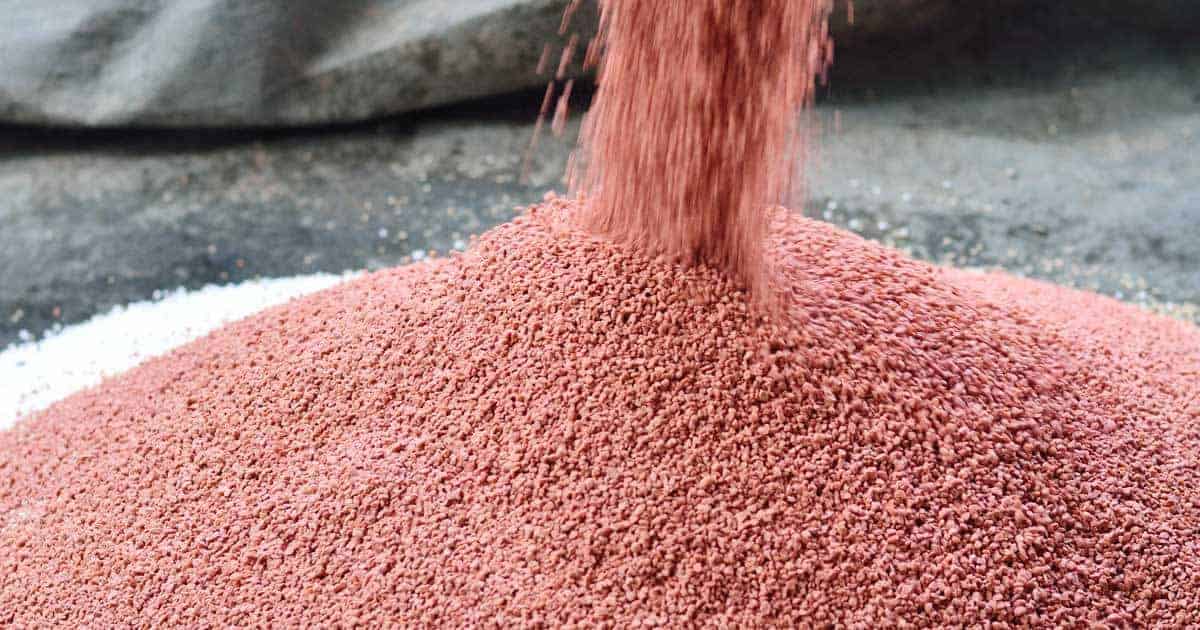

0 thoughts on “What Is Npk Fertilizer”